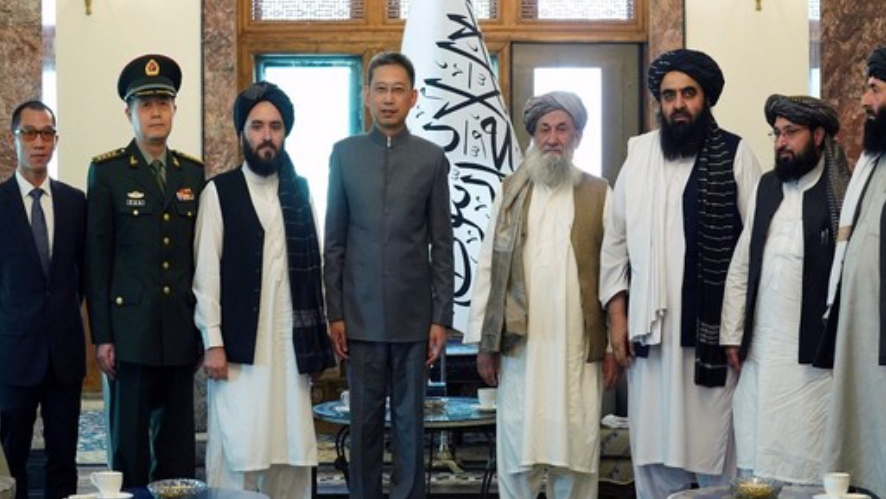Time for a negotiated peace in Ukraine?
- SIS Blog

- Oct 2, 2023
- 3 min read

By Prof. (Dr.) Gulshan Sachdeva
As Ukraine's counteroffensive falters, potential for India's peace initiative emerges
The war in Ukraine has again entered a new phase, with both Russia and Western powers actively reevaluating and adjusting their strategies. Despite some minor periodic gains, the widely discussed Ukrainian counteroffensive initiated in early June has not yielded significant results thus far.
Russia has been able to consolidate and defend most occupied territories. In the meanwhile, Russian forces continue to target Ukrainian assets with drones and missiles. Some leaked US intelligence reports indicate that Kyiv will not be able to achieve one of the key objectives of the counteroffensive – severing Russia’s land bridge to Crimea.
Numerous leaked reports and analyses offer a range of explanations for the counteroffensive's lack of success. These factors include Ukraine's overly optimistic expectations for a rapid breakthrough, insufficient Western support in terms of weaponry and training, and overly enthusiastic reports by Western media.
West Tempers Its Expectations
The idea of Russia’s “strategic defeat” is still alive in the Western policy circles and media. It had two major dimensions. First, isolating Russia diplomatically and squeezing Moscow economically through sanctions. Second, providing military, financial and diplomatic support including the promise of European Union membership to Ukraine.
The success of the strategy depended on Ukrainian military breakthroughs on the ground and Russia’s economic isolation and collapse. On both these counts, the strategy has not been proved very effective so far.
With the expectation of a quick military breakthrough fading, NATO Secretary-General Jens Stoltenberg now says that “we must prepare ourselves for a long war in Ukraine”. The American strategist Edward Luttwak also asserts that the war in Ukraine “has entered its "grin and bear it" period”. It is not clear, however, if Ukraine’s Western allies are really ready for a long war.

Aid To Ukraine Will Remain Generous
At the moment, the Western support to Ukraine is still strong in terms of military, financial and humanitarian assistance. So far, the United States has provided $77 billion which includes $47 billion in military aid. The EU and its member states have committed altogether $140 billion including military aid since the war began in February 2022. This encompasses the Euro 50 billion new Ukraine facility announced in June and to be implemented by 2027. Military aid from Germany and the UK is about $18 billion and $7 billion respectively.
Despite some signs of weakening support in a few countries like Hungary in Eastern Europe, overall European support to Ukraine is likely to continue. Only last week, Germany announced $428 million additional military support for Ukraine. President Biden has been pressing the Congress to provide an additional $24 billion aid for Ukraine.
During his recent visit to Washington, Ukraine’s president Volodymyr Zelenskyy was promised additional $325 million aid including advance air defence systems. There are also discussions on providing Army Tactical Missile Systems. However, due to domestic politics and the election cycle, things are going to be less certain in the United States. Moreover, without any solid military success in Ukraine, the war fatigue may easily spread among allies.
What Russia Wants
Learning from its initial mistakes, Russia seems to have consolidated military gains, even amid the counteroffensive. In a changed situation, Moscow is not in favour of a ceasefire. Instead, it has provided some hints regarding how to bring an end to the conflict.
During the recent press conference at the UN, the Russian Foreign Minister Sergey Lavrov mentioned that 10 point peace plan prepared by Kiev is not realistic and conflict would be resolved at the battlefield, if the West sticks to this plan. But he also asserted that Russia recognised Ukrainian sovereignty way back in 1991.
Apart from respect for minorities, he argues that the 1991 declaration also mentioned that “Ukraine would be a non-bloc, non-alliance country; it would not join any military alliances. In that version, on those conditions, we support Ukraine’s territorial integrity”.
Put simply, Russia is willing to respect territorial integrity of Ukraine provided it promises not to join NATO. Still, there was no mention of Crimea. Obviously, these are early days for any serious discussion on the resolution.
India As Mediator
These developments, however, do indicate that there is a potential for a fresh diplomatic initiative to resolve the Ukrainian crisis. Amidst a changing global order, New Delhi has shown that it has the capacity, both in terms of diplomatic skills and personal relationships, to shape a compromise.
This was clearly evident at the recently concluded G20 summit. Despite the world being geopolitically divided, a consensus declaration was produced.
Along with some key Global South leaders, this may be an appropriate time for New Delhi to launch a fresh initiative to resolve a major geopolitical crisis of our time.
Originally Published : Money Control, 29th September' 2023
Posted in SIS Blog with the Authorisation of the Author
Prof. (Dr.) Gulshan Sachdeva is Professor at the Centre for European Studies and Coordinator, Jean Monnet Centre of Excellence, Jawaharlal Nehru University, New Delhi, India




